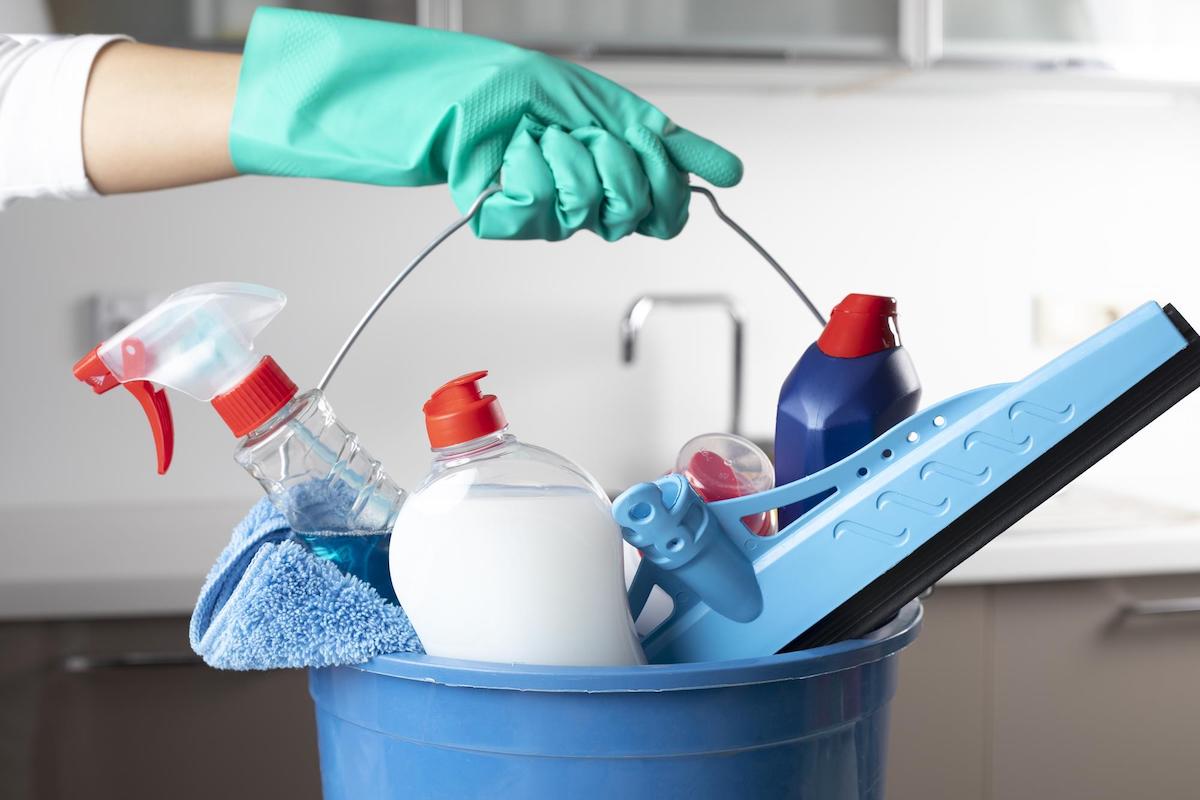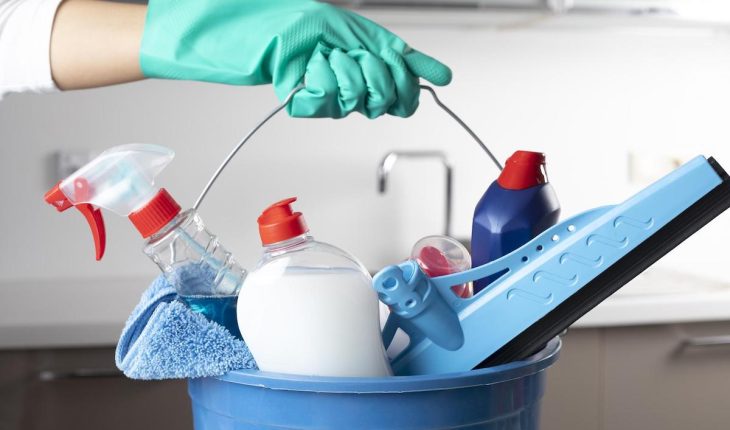There’s no other way to say it: things are pretty weird right now. Lots of people have been left without easy access to household essentials and cleaning supplies; and, in an already stressful situation, that can cause some panic.

The good news is that there’s some tried-and-true advice when it comes to mixing and repurposing chemicals and cleaning supplies. Below, we’ve outlined some of the most critical beginner info for anybody who needs to get creative with cleaning.
Three Sources to Consult BEFORE Using (Let Alone Mixing) Products
If everybody is totally honest, people should look up the cleaning supplies that they plan to use before even using them once. This isn’t really realistic, but the step should never be skipped if someone plans to cross-use or mix cleaning products.
Before any of that occurs, consult three sources to help clarify vital information about the product:
• The manufacturer’s usage and safety instructions
• On product packaging; Googlable with product name + “usage” and/or “directions”
• The ingredients list
• Also on product packaging; and also Googlable (with product name + ingredients)
• The safety data sheet (SDS) for the product
• Google product name + SDS
Safety data sheets are particularly useful because they offer all of this information in one easy-to-read document. Product users should always consult the product’s SDS to find out about handling, storage, hazards, and intended use.
Dish Soap as Hand Soap? Using Tile Cleaners for Plastic? Don’t Worry
With all the panic and commotion that surrounds mixing cleaning and sanitary products, some are mixable and interchangeable. Basic household cleaning products like dish soap can be used as hand soap, for example. Everyone in the house might get a minor case of dry skin, but that’s likely to be the worst result.
The same goes for basic household cleaners intended for use on “certain surfaces.” It’s true that someone’s wood oil is unlikely to help them clean off their baby’s plastic high chair, but some simple tile cleaner could probably do in a pinch. Small substitutes like these tend to be fine– but, as always, it’s important to do a little research before jumping into cross-use or mixing.
Stay Away From These Combinations
Some chemical combinations are renown for the dangers they pose. An article or blog post on the Internet should hardly be viewed as an exhaustive source of this information, but here’s a checklist of some basics to avoid to get started.
The DONT’S of Mixing Cleaning Chemicals
• Products containing SODIUM HYPOCHLORITE (bleach) must NOT BE MIXED WITH CHEMICALS OTHER THAN WATER
• Bleach and vinegar create chlorine gas; this causes coughing, breathing problems, and water eyes even in small amounts
• Bleach and ammonia produce a toxic gas (chloramine) that causes chest pain and shortness of breath
• Ever heard of chloroform? Yeah…
• Products containing HYDROGEN PEROXIDE must NOT BE MIXED WITH VINEGAR
• Combination results in corrosive acid
• Never mix two drain cleaners
• Most use powerful formulas; they can explode when combined
Is Bubble Mix Substitutable for Soap?
Weird times call for some weird measures– and if somebody really can’t find soap, who can blame them for exhausting every option?
Bubble mix– the kind people use for bubble wands and bubble machines– is usually a mix of a few simple ingredients:
• Dish soap
• Glycerine
• Corn syrup
• Water
In essence, bubble soap is pre-diluted dish soap. It’s nowhere near as thick as regular dish soap, though, so it can’t always be used as easily or effectively. Someone might have a tough time if they dumped bubble soap into a mug and expected to wash it with no difficulty. It’s important to remember that bubble soap was never meant for this purpose, though– it’s likely to leave an unattractive residue once washing is finished.
Bubble mix is still technically substitutable for soap, though. We recommend using it to soak especially dirty or large dishes. It can even be used to clean off countertops or as a floor mopping solution.
When in Doubt, the Answer is No
If we could create a compendium of useful cleaning and chemical information, we could– but we don’t have space! That’s why we think it’s important to reiterate that if somebody isn’t sure about mixing chemicals or repurposing cleaning supplies, they shouldn’t do it. It’s always safest to err on the side of caution when chemicals are involved. If a reputable source can’t provide an answer, someone is better safe than sorry.

